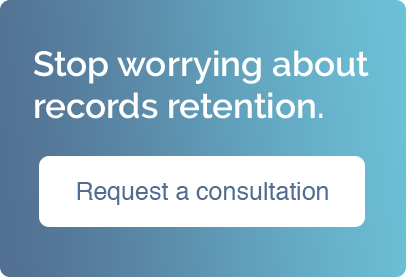The Problem with the 7-Year Rule

When your organization has copious amounts of records you are responsible for keeping and maintaining, it is easy to fall into the habit of disposing of records after seven years. While keeping records for seven years is generally a good rule of thumb, it is not always accurate. The length of time in which you should, or are legally obligated to keep documents will be dependent upon the action, expense, or event in which the document is recording.
A good rule to live by when establishing a reliable document retention schedule is to keep all records that are directly related to or support an item that shows an income, deduction, or credit that will be shown on your tax return. You will want to keep these records until the period of limitations on that particular tax return runs out.
During the period of limitations, you can amend your tax return to claim a credit or refund from the IRS. Additionally, during this period, the IRS can also assess additional taxes. Therefore, it is vital to know precisely how long you should keep documents based on their period of limitations and not just default to seven years. Aside from keeping your records for the correct period, it is going to be in your best interest to also retain a copy of your filed tax returns.
When trying to determine if you need to continue to hold on to a document or if you can destroy it, there are a couple of questions you should consider.
Are the records connected to property?
The best rule of thumb is to keep all records that are directly related to a property until after the period of limitations has expired for the year in which you sell the property. These documents will be necessary to be able to determine and figure out any depreciation, amortization, or depletion deduction that may pertain to you. Additionally, you’ll need these documents to figure the gain or loss when you sell or dispose of the property in any other way.
What to do with records for non-tax purposes?
After records have reached the period of limitations for tax purposes, you’ll want to ensure that you don’t need them for any other purpose before you dispose of them. For example, some insurance companies or creditors may require that you keep specific records for a longer period than is required by the IRS.
Know the requirements for how long you need to keep records and don’t merely establish a document retention schedule blindly, believing the 7-year rule will protect you. Once you have educated yourself, you can then confidently create a retention schedule that works for you and your business.

